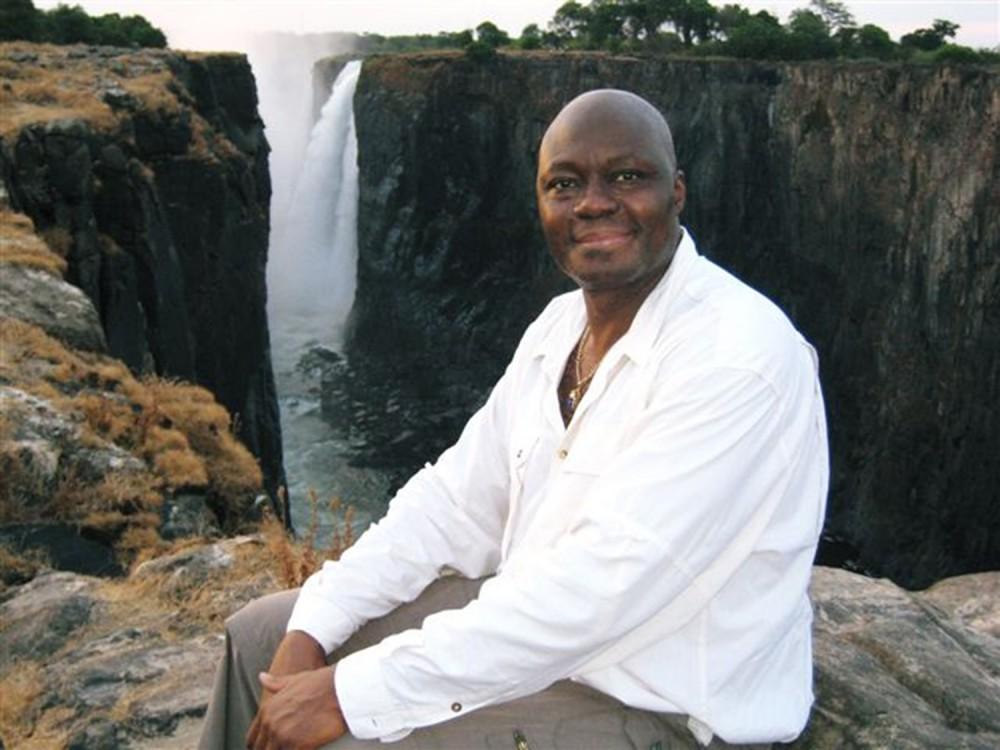Visiting Congolese speaker to give presentations in French

Courtesy / Jungle Key Kama Sywor Kamanda
Mar 19, 2014
The French language is often recognized as one of the most beautiful spoken languages worldwide. Literature-loving Lakers who are fluent in the language of love have the opportunity to attend a series of events that involve both French and poetry.
Kama Sywor Kamanda, an award-winning Congolese French language poet and writer, will be visiting Grand Valley State University later this month for a number of events that focus on his life and work. On Monday at 6 p.m., Kamanda will host a poetry reading – entirely in French – at the Loosemore Auditorium in the DeVos Center on the Pew Campus.
The following morning, Kamanda will visit the Allendale Campus to lead a talk on the Democratic Republic of Congo. The presentation begins at 11 a.m. in room 2250 of the Kirkhof Center and will be given in French, but it will also be translated to English. Both of Kamanda’s appearances at GVSU are free and open to the public.
Kamanda’s stop in West Michigan was made possible by the support of a number of departments and organizations at GVSU, including the modern languages and literatures department, the College of Liberal Arts and Sciences, the Office of Multicultural Affairs, Brooks College of Interdisciplinary Studies, Padnos International Center, African and African-American area studies, and the political science and English departments.
One such supporter who helped land the visit was Isabelle Cata, a GVSU French professor and French section coordinator, who has been working on Kamanda’s poetry and tales for years. She is also in the process of completing a book on his works.
“His original tales are wonderfully imaginative and depict a little-known Africa,” Cata said. “He is a proud African, proud of Africa’s traditions and beauties. He can offer students a new outlook on Africa.”
Born in the Democratic Republic of Congo in 1952, Kamanda published his first collection of stories at the age of 15. After attending the Université de Kinshasa and the University of Liège to study an array of disciplines such as law, literature, philosophy and political science, Kamanda worked as a journalist and helped to establish the Union of Congolese Writers.
In 1977, Kamanda was forced to leave the Congo due to his political activities. Existing in an interminable state of exile, Kamanda has continuously travelled the world attending conferences and hosting poetry readings, and in 1985, he founded the African Association of Writers.
As a novelist, poet and storyteller, Kamanda has produced an impressive body of literary work, including several novels, several hundred stories, and more than a dozen anthologies of poetry. His work focuses on the affliction of living in exile and solitude, while also demonstrating an ardent revelry of love. According to Kamanda, his poetry speaks of men and women from all continents that fight for a real and just humanism where their dreams can become realities. He believes his writing is poetry of life, love, hope and the exaltation of values that encourage the blossoming of the individual within a community where harmony depends upon the contribution of each member.
Apart from his talks, Kamanda will be the guest of honor at the French Mélodies event on March 26 in the Cook-DeWitt Center on the Allendale Campus. Beginning at 6 p.m., the night will feature students, faculty and members of the community reciting poems, singing French songs and playing French musical pieces. Cata said Kamanda will recite his pieces in French, but organizers of the event are preparing a bilingual program in order to include English-speaking attendees.
So while French-speaking Lakers in particular may be able to appreciate the presentations a bit more than other students, the English translations available at the events will make the experience accessible to all.
Cata said the lessons that can be learned by listening to Kamanda speak are worthwhile to students of any discipline.
“Kamanda is a great poet and received many literary prizes over the years,” she said. “He can be a model of success and an inspiration for students.”























